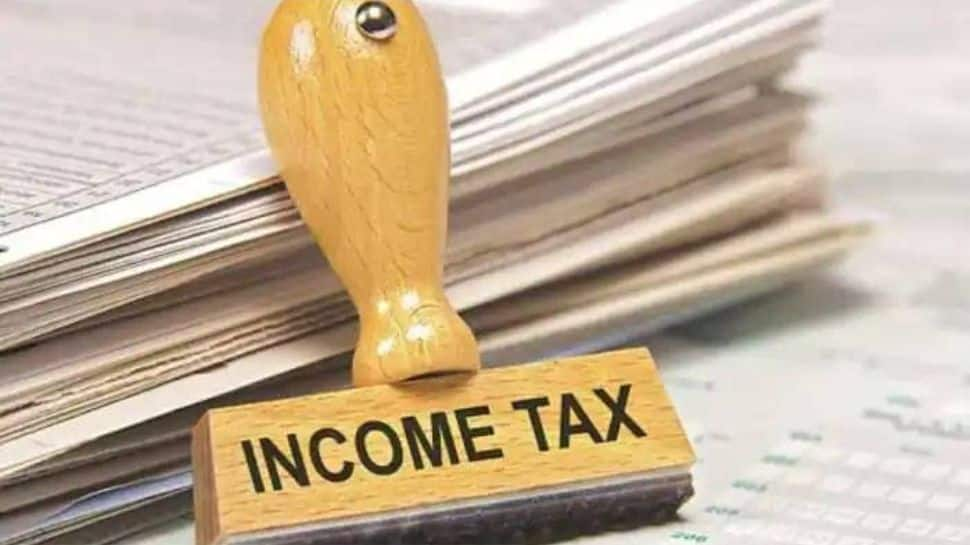Business
Airlines cancel more than 700 U.S. flights as FAA-ordered shutdown cuts begin

Travelers wait in line at a security checkpoint at O’Hare International Airport in Chicago, Illinois on November 7 2025.
Kamil Krzaczynski | Afp | Getty Images
U.S. airlines started cancelling hundreds of flights on Friday, hours after the Federal Aviation Administration ordered the cuts amid the more-than-monthlong government shutdown.
The cuts were ordered as air traffic controllers have missed their paychecks due to the government shutdown, now the longest in U.S. history. Air traffic control staffing shortages have been disrupting flights at several major U.S. airports, vexing travelers and airline executives alike.
Air traffic controller shortages were delaying flights at several major U.S. airports on Friday, including Newark Liberty International Airport in New Jersey, San Francisco International Airport and Hartsfield-Jackson International Airport in Atlanta.
The sudden flight cuts this week forced airlines to scramble with schedule adjustments and make sure crews are where they need to be despite the last-minute changes.
More than 700 U.S. flights were canceled as of 9 a.m. ET Friday, according to aviation data firm Cirium, about 3% of the total schedule for the day. That scale of disruption is fairly common for routine disruptions like major thunderstorms, but the Department of Transportation warned that cancellations could ramp up.
According to the FAA’s order, the flight cuts will increase to 10% over the next week, beginning with 4% on Friday, 6% by Tuesday, 8% by Thursday and finally 10% on Nov. 14.
Friday’s cancellation levels were the 72nd worst for the U.S. flights market since Jan. 1, 2024, according to Cirium. That period also included a Southwest Christmas meltdown after severe weather and mass delays at Delta Air Lines last summer in the wake of a CrowdStrike tech outage.
The financial impact of the latest disruptions isn’t immediately clear. The cancellations could help lift airlines’ unit revenue with customers competing for fewer seats, “but we also believe the prolonged shutdown and widespread cancelations will impact booking demand in the near term,” Scott Group, an airline analyst at Wolfe Research, wrote in a note Friday.
The cuts come during a generally low-demand period for travel ahead of the Thanksgiving holiday, but it still sent many travelers searching for alternatives. Rental car company Hertz said that reservations over the past two days for one-way rentals spiked more than 20% from the same period last year.
Major network airlines said the disruptions were largely centered on regional flights that fly to smaller cities. United Airlines, for example, said its hub-to-hub flying and its long-haul international flights wouldn’t be canceled because of the order.
American Airlines, for its part, said it was limiting disruptions to customers by avoiding cuts to routes it only flies once or twice a day. Instead, the airline is trimming a few flights a day from high-frequency markets – like reducing daily departures between its hub at Dallas Fort Worth International Airport to Northwest Arkansas National Airport from 10 to eight, and Boston Logan International to Ronald Reagan Washington National from 10 to nine.
The airline canceled 221 flights on Friday, according to CEO Robert Isom, who said the airline is “frustrated” with the reduction.
Isom said on CNBC’s “Squawk Box” that the airline is working to ensure flights to all destinations still remain in place, but that the frequency of those flight paths are decreasing.
“What we’ve done today is we tried to minimize the impact on all of our customers — there’s only 220 flights out of 6,200, flights, and we’ve done it in a way that really impacts our smaller aircraft,” Isom said. “This level of cancellation is going to grow over time, and that’s something that is going to be problematic.”
What passengers need to know
Airlines offered travelers alternative flights and waived change fees for affected customers.
Experts recommend staying on top of changing schedules by checking airline apps and websites, as well as checking the fine print on travel insurance.
AAA spokesperson Aixa Diaz said the company recommends arriving at the airport 2 hours early to avoid long lines and avoid checking in a bag if possible in case flights get canceled, though flexibility will be the most important for all travelers during this period.
Travel insurance experts warn that policies don’t always offer blanket protection for shutdown-related changes, and that refunds can often come down to the specific rationale used by the airline to determine the cause of delay or cancellation.
According to Lauren McCormick, a spokesperson for travel insurance platform Squaremouth, airlines sometimes won’t cite causes other than general delays even during a shutdown, which could make it harder to get a refund.
Here’s where flights are expected to be cut, per the FAA and DOT order:
Impacted airports:
- ANC – Anchorage International
- ATL – Hartsfield-Jackson Atlanta International
- BOS – Boston Logan International
- BWI – Baltimore/Washington International
- CLT – Charlotte Douglas International
- CVG – Cincinnati/Northern Kentucky International
- DAL – Dallas Love
- DCA – Ronald Reagan Washington National
- DEN – Denver International
- DFW – Dallas/Fort Worth International
- DTW – Detroit Metropolitan Wayne County
- EWR – Newark Liberty International
- FLL – Fort Lauderdale/Hollywood International
- HNL – Honolulu International
- HOU – Houston Hobby
- IAD – Washington Dulles International
- IAH – George Bush Houston Intercontinental
- IND – Indianapolis International
- JFK – New York John F. Kennedy International
- LAS – Las Vegas McCarran International
- LAX – Los Angeles International
- LGA – New York LaGuardia
- MCO – Orlando International
- MDW – Chicago Midway
- MEM – Memphis International
- MIA – Miami International
- MSP – Minneapolis/St. Paul International
- OAK – Oakland International
- ONT – Ontario International
- ORD – Chicago O’Hare International
- PDX – Portland International
- PHL – Philadelphia International
- PHX – Phoenix Sky Harbor International
- SAN – San Diego International
- SDF – Louisville International
- SEA – Seattle/Tacoma International
- SFO – San Francisco International
- SLC – Salt Lake City International
- TEB – Teterboro
- TPA – Tampa International
(The airport in Las Vegas was renamed the Harry Reid International Airport in 2021.)
— CNBC’s Greg Iacurci contributed to this report.
Business
New income tax rules 2026: Simpler returns, stricter documentation — Key changes for taxpayers

New Delhi: The Income Tax Department has unveiled the Draft Income-tax Rules, 2026, laying the groundwork for how the new Income-tax Act, 2025 will be implemented. Although these rules are currently in draft form and could be revised after consultations with stakeholders, they offer taxpayers a clearer picture of what to expect from April 1, 2026. From better-defined valuation norms for income and perks to a push for simpler returns and more predictable compliance, the proposed rules signal a move towards a more structured and streamlined tax regime.
Push for easier ITR filing and transparent tax computation
A major focus of the draft rules is to make income-tax return (ITR) filing simpler under the new law. The government has clearly spelled out formulas and valuation methods in advance especially for salary income, perks, capital assets and foreign income. This is expected to reduce confusion and limit disputes while filing returns.
Clearer rules on taxation of employee benefits
The draft rules put special focus on how employer-provided benefits will be taxed, bringing more clarity for salaried individuals. Perks such as company accommodation, cars, meal benefits, gifts, credit card expenses, club memberships and concessional loans have been clearly defined under the proposed framework.
For instance, employer-provided housing will be taxed based on the city’s population and the employee’s salary. Use of a company car will be categorised as official, personal or mixed, with fixed monthly values assigned for tax purposes. The rules also highlight specific documentation requirements, particularly when employees claim official use. While this may mean tighter scrutiny, it also sets clearer expectations and reduces ambiguity for taxpayers.
Relief on meals, gifts and minor perks continues
The draft rules also retain tax relief on several common employee benefits. Free meals and non-alcoholic beverages provided during working hours will remain tax-free up to Rs 200 per meal. Similarly, gifts, vouchers or tokens given by employers will not attract tax as long as their total value does not exceed Rs 15,000 in a financial year.
In addition, interest-free or concessional loans from employers will continue to be exempt up to Rs 2 lakh. Loans taken for specified medical treatment will also enjoy tax benefits, subject to certain conditions. These provisions ensure that smaller workplace perks continue to offer some tax relief for salaried taxpayers.
Streamlined process, but better record-keeping required
The draft rules aim to make tax calculations more straightforward, but they also place greater emphasis on proper documentation. With detailed tables for valuing perks and clearly defined formulas, the scope for disputes and litigation may come down. However, both employees and employers will need to maintain accurate records, especially for travel claims, company car usage and reimbursements. In short, while compliance could become more structured and predictable, paperwork discipline will be key.
Clearer norms for NRIs, focus on global income rules
The draft rules also bring more clarity for non-resident Indians (NRIs), especially on how income connected to India will be calculated when exact figures are not readily available. They lay down specific methods for computation and clearly define thresholds for what qualifies as “significant economic presence,” potentially widening the scope of taxation in certain cases.
At the same time, Indian seafarers have been given much-needed clarity. The rules state that days spent on eligible foreign voyages will not be counted while determining residential status, provided the required certificates are maintained. This move is expected to reduce confusion and disputes around tax residency for those working at sea.
Clear valuation norms for ESOPs and share investments
The draft rules lay down detailed guidelines for valuing both listed and unlisted shares, which will be important for employees holding ESOPs as well as investors. They clearly spell out how the fair market value (FMV) will be determined and in which cases a valuation report from a merchant banker will be mandatory. This could directly impact the tax liability at the time of exercising stock options.
However, it is worth remembering that these are still draft rules and may be revised before final notification. That said, procedural provisions of this nature typically undergo limited changes once they are finalised.
New Income Tax law to replace 1961 Act from April 1
India is set to usher in a new tax regime with the Income Tax Act, 2025, which will replace the more than 60-year-old Income Tax Act of 1961 from April 1. The Income Tax Department has invited stakeholder comments on the Draft Income-tax Rules, 2026, and related forms till February 22, after which the final rules and forms under the new law will be notified.
Business
Silver price shock: ETFs tumble 38% in 7 trading sessions— Time to invest? – The Times of India

Silver exchange-traded funds (ETFs) saw a dramatic 38 per cent drop, from their peak just seven days ago on January 29. This sharp decline was triggered by increased trading costs and investors cashing out profits. The market saw wild swings as silver prices first fell below $65 per ounce before bouncing back up by 8.6 per cent to $77.33 on Friday.The market turmoil intensified when CME Group, a major trading platform, raised the money needed to trade silver futures. This was their third such increase in just two weeks. The higher costs forced many traders to sell their holdings quickly. Adding to the pressure were concerns about the Federal Reserve’s strict monetary policy after Kevin Warsh’s nomination and a stronger US dollar.“Last week’s steep plunge was driven by hawkish Fed expectations after Kevin Warsh’s nomination, a stronger dollar, and sharp CME margin hikes that forced leveraged unwinding,” said Hareesh V, who leads commodity research at Geojit Investments Limited. He added that profit-taking after reaching record highs made the market even more unstable, as quoted by ET.The recent events have shown how quickly silver prices can change. These sudden price moves have left many investors nervous about the market’s stability. The combination of higher trading costs, profit-taking, and broader economic factors has created a perfect storm in the silver market.
Time to invest?
Fund managers are encouraging investors to consider silver investments despite recent volatality, recommending a systematic approach for long-term gains. While silver prices have fallen sharply from recent highs above $120, experts believe the fundamental outlook remains strong due to supply deficits and robust industrial demand, though they emphasize the importance of careful position sizing and risk management.“Yes, at current levels investors can consider taking exposure to silver ETFs with a long-term perspective and through a systematic approach,” said Satish Dondapati, Fund Manager at Kotak Mahindra AMC, as quoted by ET. He advised limiting precious metals allocation to 15-20% based on risk tolerance.The recent price decline was amplified by silver’s thin market structure. “Silver has come off mainly because it has run up too fast in a short period,” said Akshat Garg, Head of Research & Product at Choice Wealth. He noted that silver typically shows more dramatic price swings than gold due to its smaller market size.Technical signs suggest prices may stabilise soon, according to ET analysis. Silver now trades in the $71-$80 demand zone, with support near $64 matching the 100-day moving average. This indicates potential recovery after the correction from $120 levels.Wealth managers strongly recommend a staggered buying approach over lump-sum investments. “Investors should avoid chasing prices or reacting to day-to-day moves. Silver works best as a small, supporting allocation in a portfolio, not as a core holding,” Garg advised.Experts emphasised staying focused on long-term fundamentals like geopolitical tensions and central bank policies while monitoring the dollar and Fed signals. They suggest the recent decline may offer opportunities for those who missed earlier gains, provided they can handle continued market volatility.“For long-term investors, this phase is about patience and discipline rather than action,” Garg added. A move above $80-$85 could signal further recovery toward $100-$105, though investors should prepare for ongoing market turbulence, according to him.(Disclaimer: Recommendations and views on the stock market and other asset classes given by experts are their own. These opinions do not represent the views of The Times of India)
Business
Fractal Analytics, Aye Finance, Marushika Tech: Three IPOs To Open Next Week; All You Need To Know

Last Updated:
The two mainboard IPOs opening next week are Fractal Analytics and Aye Finance, and the SME IPO is Marushika Technology.


Two IPOs are going to be closed on February 10 are Biopol Chemicals and PAN HR Solution.
The primary market has been muted for the past few weeks. However, the initial public offering (IPO) market is going to see three new issues next week, including two mainboard. Apart from that, two IPOs are already open and will be closed on February 10.
The two mainboard IPOs opening next week are Fractal Analytics and Aye Finance, and the SME IPO is Marushika Technology. Also, the two IPOs that will close on February 10 are Biopol Chemicals and PAN HR Solution.
Brandman Retail and Grover Jewells will debut on the bourses on February 11
Fractal Analytics IPO
Pure-play artificial intelligence company Fractal Analytics will open its maiden public issue on February 9, with the issue closing on February 11. The company is looking to raise Rs 2,834 crore at the upper end of its price band of Rs 857-900 per share.
The IPO comprises a fresh issue of shares worth Rs 1,023.5 crore and an offer-for-sale (OFS) of shares worth Rs 1,810.4 crore. The selling shareholders in the OFS include TPG Fett Holdings, Apax Partners’ Quinag Bidco, GLM Family Trust, Satya Kumari Remala and Rao Venkateswara Remala.
Fractal Analytics is backed by global private equity firms Apax Partners and TPG. Ahead of the issue opening, the company raised Rs 1,248 crore from anchor investors on February 6.
Its grey market premium (GMP), which indicates investors’ readiness to pay for the IPO, currently stands at 3.22% of the upper IPO price of Rs 900, indicating weak potential listing gains.
Aye Finance IPO
Alphabet and LGT Capital-backed NBFC Aye Finance will also open its IPO on February 9 and close on February 11. The company has fixed a price band of Rs 122-129 per share for its Rs 1,010-crore public issue.
The IPO consists of a fresh issue of shares worth Rs 710 crore and an offer for sale (OFS) of Rs 300 crore by existing investors, including Alpha Wave India, MAJ Invest Financial Inclusion Fund, CapitalG, LGT Capital Invest Mauritius and Vikram Jetley.
Ahead of the IPO, Aye Finance has already raised over Rs 454 crore through its anchor book on February 6.
Its grey market premium (GMP), which indicates investors’ readiness to pay for the IPO, currently stands at zero against the upper IPO price of Rs 129, indicating flat or negative listing.
Marushika Technology IPO
From the SME segment, Marushika Technology’s IPO will open on February 12 and close on February 16. The IT and telecom infrastructure solutions provider aims to raise ₹26.97 crore through the issue of 23.05 lakh shares.
The price band for the SME issue has been fixed at Rs 111-117 per share.
Other IPO and listing updates
Meanwhile, specialty chemicals maker Biopol Chemicals and manpower solutions provider PAN HR Solutions, both from the SME segment, will close their IPOs on February 10. These issues opened on February 6 and were subscribed 81 per cent and 12 per cent, respectively.
Next week will also see multiple SME listings. Brandman Retail and Grover Jewells will debut on the bourses on February 11 after their IPOs were subscribed nearly 107 times and 18 times, respectively. Biopol Chemicals and PAN HR Solutions are scheduled to list on February 13.
February 08, 2026, 09:44 IST
Read More
-

 Tech6 days ago
Tech6 days agoHow to Watch the 2026 Winter Olympics
-

 Business6 days ago
Business6 days agoPost-Budget Session: Bulls Push Sensex Up By Over 900 Points, Nifty Reclaims 25,000
-

 Tech1 week ago
Tech1 week agoRight-Wing Gun Enthusiasts and Extremists Are Working Overtime to Justify Alex Pretti’s Killing
-

 Fashion6 days ago
Fashion6 days agoCanada could lift GDP 7% by easing internal trade barriers
-

 Fashion1 week ago
Fashion1 week agoItaly’s Brunello Cucinelli debuts Callimacus AI e-commerce experience
-

 Tech7 days ago
Tech7 days agoI Tested 10 Popular Date-Night Boxes With My Hinge Dates
-

 Entertainment6 days ago
Entertainment6 days agoThe Traitors’ winner Rachel Duffy breaks heart with touching tribute to mum Anne
-

 Business6 days ago
Business6 days agoInvestors suffer a big blow, Bitcoin price suddenly drops – SUCH TV












